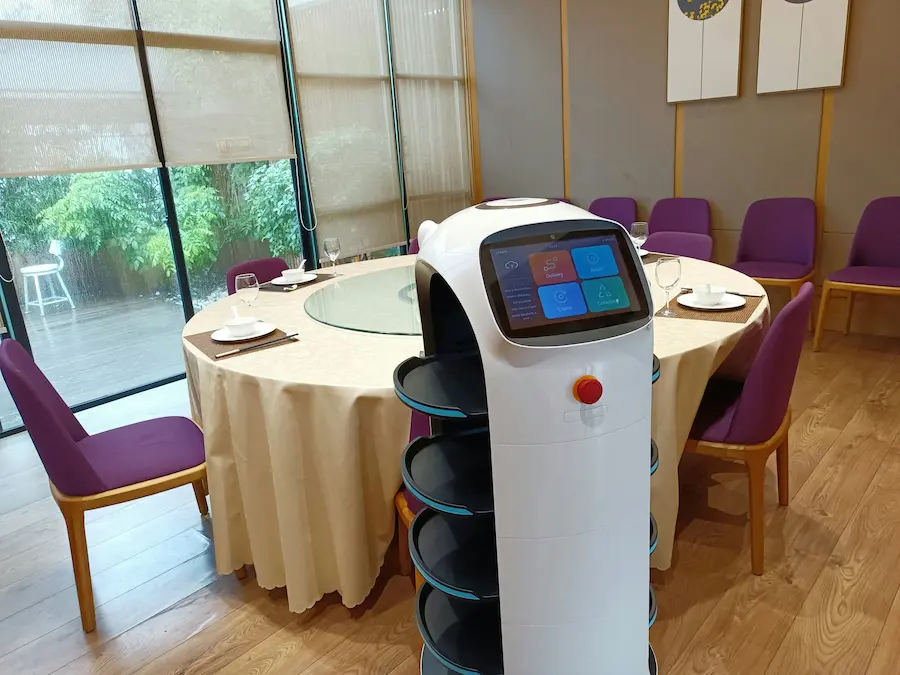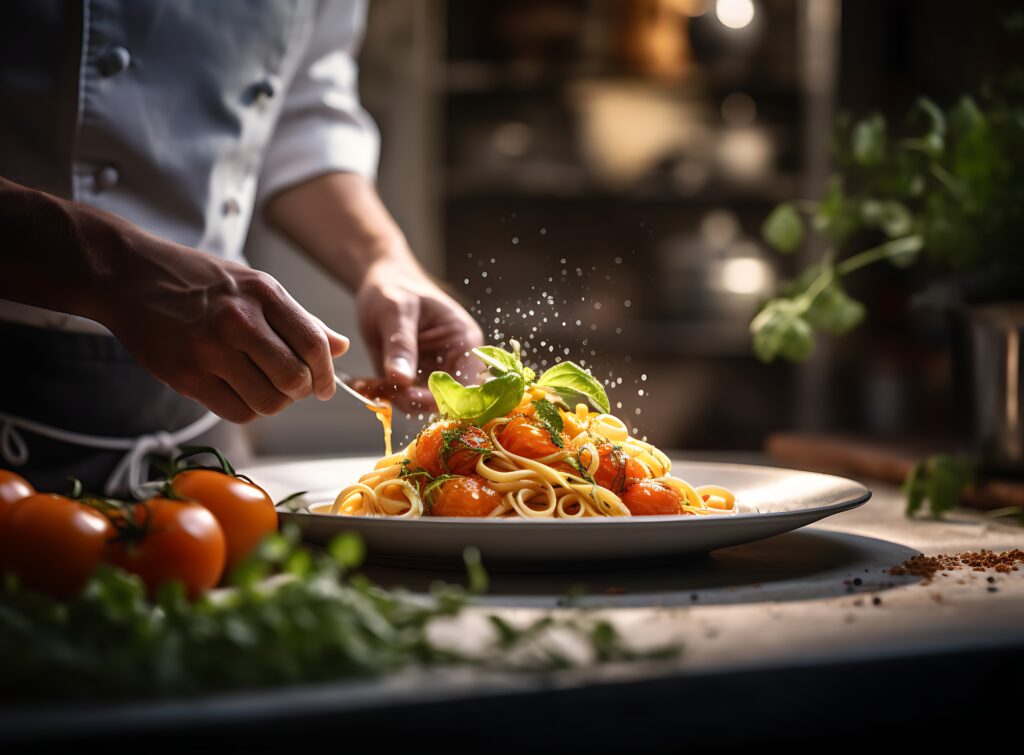Imagine a world where your meal arrives courtesy of a self-driving delivery vehicle, your order is placed through a lightning-fast digital assistant, and your coffee is brewed by a tireless robotic barista. This is now not the plot of a science fiction film, but a peek into the not-so-distant future of food service.
The Rise of the Machines: From Kiosks to Kitchen Assistants
For years, automation has been quietly creeping into the world of restaurants. We’ve seen the rise of self-service kiosks, once relegated to fast-food joints, becoming commonplace in casual dining establishments. These digital assistants take orders with lightning speed, eliminating the need for human interaction and streamlining the ordering process.
But the automation revolution doesn’t stop at the front of the house. Back in the kitchen, robotic chefs are emerging from their metallic shells, ready to tackle repetitive tasks like chopping vegetables, flipping burgers, and even assembling pizzas.

The Human Touch: Will Robots Replace Restaurant Staff?
The rise of automation naturally begs the question: will robots replace human staff altogether? While technology is undoubtedly advancing, a report by McKinsey & Company suggests it’s unlikely that restaurants will become entirely robotic.
“The human touch will always be valued, especially in high-end establishments,” says a McKinsey report, highlighting the importance of personalized service that robots cannot replicate.
However, the role of human staff will likely evolve. Imagine chefs focusing on the creative aspects of cooking, crafting innovative dishes and overseeing the overall quality of the food, similar to how chefs at Michelin-starred restaurants work today. Servers could become “guest experience specialists,” ensuring diners have a seamless and enjoyable experience throughout their visit.

Beyond Efficiency: The Benefits of Automation
The benefits of automation in food service extend far beyond just increased efficiency. Robots can handle tedious and physically demanding tasks, freeing up human staff to focus on more creative and customer-centric roles. Additionally, automation can help to address the ongoing labour shortage in the hospitality industry, providing a reliable and consistent workforce.
A recent report by the National Restaurant Association echoes this sentiment. “Automation offers a potential solution to the labour shortage plaguing the restaurant industry,” says the National Restaurant Association report, “by allowing restaurants to operate with fewer staff members.”
A Symphony of Man and Machine: The Future We Can Look Forward To
The future of food service is not about robots taking over our kitchens and dining rooms. It’s about a harmonious collaboration between man and machine. Automation will handle the repetitive tasks, freeing up human staff to focus on what they do best – providing exceptional customer service and creating delicious food.
So, the next time you step into a restaurant, keep an eye out for the subtle signs of automation. You might just find yourself sharing a meal with a robotic busser or placing your order with a digital assistant. Embrace the change, for it’s a future filled with delicious possibilities!
Ready to navigate the exciting world of food service optimization? HPG Consulting, a team of experienced Food Service Consultants, can help you assess your current operations and identify opportunities to streamline processes, improve efficiency, and enhance the overall dining experience.